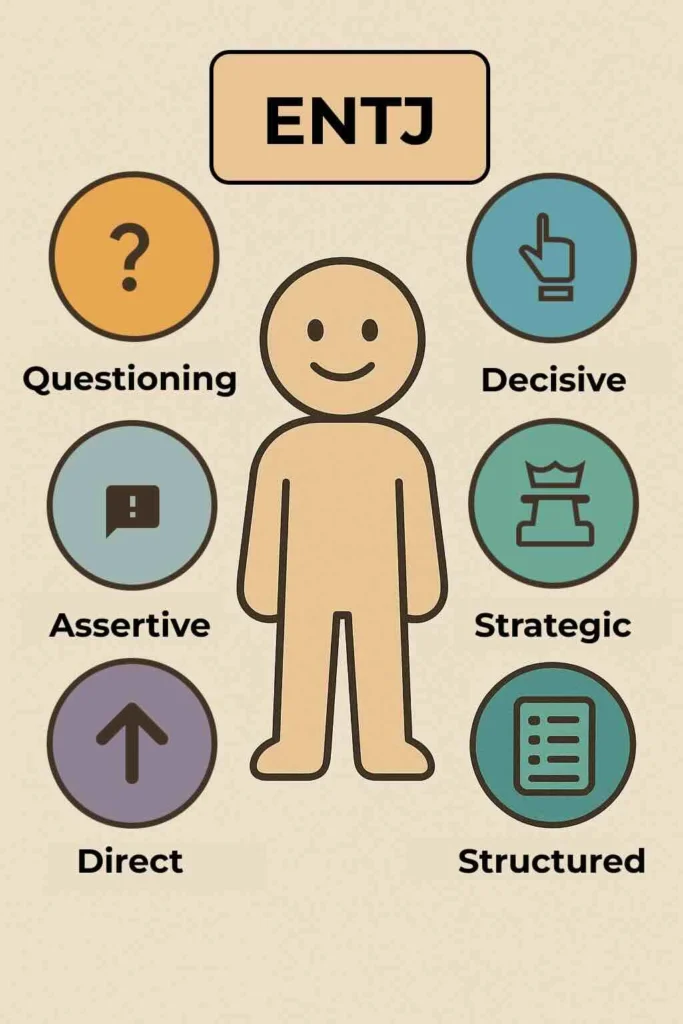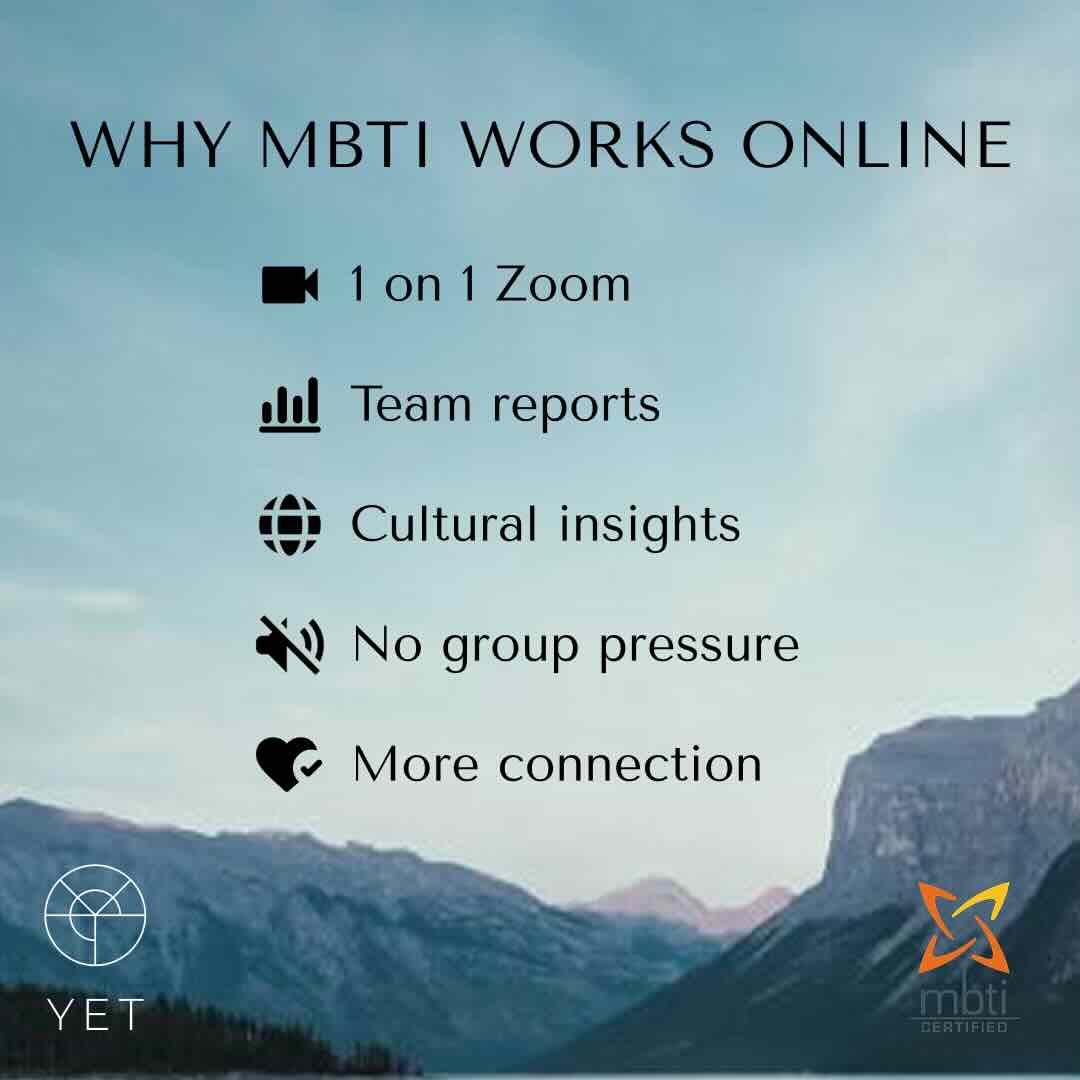Understanding the ENTJ Personality Type: The Decisive Strategist
In the realm of personality typology, ENTJ’s stand out as natural-born leaders. Known as the “The decisive strategist” of the MBTI® framework, ENTJ’s bring to the table a unique blend of charisma, strategic thinking, and an unwavering drive to accomplish their goals. ENTJ stands for “Extraverted, Intuitive, Thinking, and Judging”, representing a personality type that is decisive, organized, and action oriented. Whether in the workplace or in social circles, ENTJ’s have a reputation for being visionaries who inspire others and execute plans with precision.
In this blog post, we’ll explore the traits, strengths, challenges, and workplace dynamics of the ENTJ personality type, providing valuable insights for those who work with or are themselves ENTJ’s. Whether you are an ENTJ looking for deeper self-understanding or a colleague or manager trying to collaborate effectively with this personality type, this comprehensive guide will help you navigate the unique world of the decisive strategist.
ENTJ Core Traits
1. Extraverted (E):
ENTJ’s draw energy from the external world. They thrive in social situations, enjoy interacting with diverse groups of people, and often take the lead in conversations or projects. Their extraversion drives them to seek collaboration, leadership roles, and dynamic environments where they can bounce ideas off others.
2. Intuitive (N):
The ENTJ’s intuition allows them to focus on the bigger picture. Instead of getting bogged down by small details, they are future-oriented, constantly searching for new opportunities, innovative solutions, and ways to grow. ENTJ’s are often described as visionaries because they can foresee trends and patterns that others may miss, making them great at long-term strategic planning.
3. Thinking (T):
Logical and objective decision-making is central to the ENTJ’s personality. They rely on facts, data, and clear analysis when making judgments, preferring to detach themselves from emotions to make unbiased decisions. ENTJ’s are known for their sharp intellect and ability to problem-solve under pressure.
4. Judging (J):
Structure and order are essential to the ENTJ. They prefer a well-organized, controlled environment where they can map out their goals and execute them step by step. Deadlines, plans, and efficiency are crucial for them, and they tend to get frustrated when things become disorganized or inefficient.
Strengths of the ENTJ Personality Type
1. Natural Leadership:
ENTJ’s excel in leadership roles because they possess a strong sense of direction, purpose, and the ability to inspire and motivate others. Their charisma and confidence naturally draw people towards them, making them effective managers, team leads, and entrepreneurs. They are not afraid to take charge and make decisions, even in difficult situations.
2. Strategic Vision:
ENTJ’s have an innate ability to think several steps ahead. They can quickly assess a situation, identify potential risks and opportunities, and create actionable plans to achieve their goals. This strategic mindset makes them excellent at navigating complex situations and leading organizations through change and uncertainty.
3. Decisiveness:
When a decision needs to be made, the ENTJ doesn’t waver. They are clear about their objectives and willing to make tough choices if it benefits the larger goal. Their decisiveness helps teams move forward efficiently, avoiding the paralysis of indecision.
4. Efficiency and Productivity:
ENTJ’s are driven by a desire to achieve results. They are highly focused on efficiency, always looking for ways to streamline processes and eliminate waste. In the workplace, they are known for pushing themselves and their teams to meet high standards of productivity.
5. Confidence:
ENTJ’s exude confidence, which allows them to take risks and face challenges head-on. Their self-assured nature helps them stay calm under pressure, making them reliable leaders in both stable and crisis situations.
Challenges and Growth Areas for ENTJ’s
1. Overbearing Leadership Style:
While ENTJ’s are excellent leaders, their strong personality can sometimes come across as domineering. Their natural tendency to take charge can make others feel overshadowed or undervalued. They may inadvertently dismiss others’ ideas if they don’t align with their vision, creating friction within teams.
Growth Tip: ENTJ’s can benefit from developing their active listening skills and learning to delegate more effectively. Encouraging open dialogue and showing appreciation for team members’ contributions can help balance their leadership style.
2. Difficulty with Emotions:
ENTJ’s prioritize logic and reason, which can make them seem emotionally distant or insensitive. They may struggle to recognize or address the emotional needs of others, particularly in situations where empathy is required. This can lead to strained relationships, especially in more emotional or people-oriented environments.
Growth Tip: Learning to balance logic with empathy can improve ENTJs’ interpersonal relationships. Practicing emotional intelligence, such as being more attuned to others’ feelings and offering support, can strengthen both personal and professional connections.
3. Impatience with Inefficiency:
ENTJ’s are highly driven and expect the same level of commitment and efficiency from others. When things don’t move as quickly as they’d like, they can become impatient and frustrated, potentially leading to conflicts with colleagues who may have different working styles.
Growth Tip: ENTJ’s can work on developing patience and recognizing that not everyone operates at the same pace. Understanding the strengths of diverse working styles and being more flexible can enhance team dynamics and prevent burnout.
4. Perfectionism and Overwork:
ENTJ’s set very high standards for themselves and others, which can sometimes lead to perfectionism. They may struggle with delegating tasks or trusting others to handle important projects. This tendency can also lead them to overwork themselves, resulting in stress and burnout.
Growth Tip: Learning to trust others and set realistic expectations can help ENTJ’s avoid burnout. Incorporating downtime and relaxation into their routine is essential for maintaining long-term productivity and well-being.
ENTJ’s in the Workplace
ENTJ’s thrive in environments where they can take charge, lead projects, and implement strategies. They excel in roles that require big-picture thinking, decision-making, and problem-solving. Some ideal career paths for ENTJ’s include:
– Executive roles (CEOs, managers, business owners): These positions allow ENTJ’s to lead, set direction, and drive organizational success.
– Strategic consultants: ENTJs’ ability to analyze complex situations and offer solutions makes them great consultants, especially in business or management settings.
– Entrepreneurs: ENTJ’s are often drawn to entrepreneurship because it allows them full control over their vision and strategy.
– Project managers: Their organizational skills and ability to push teams toward deadlines make them effective project managers in various industries.
– Lawyers or judges: ENTJs’ logical, analytical minds and preference for structure make them well-suited for the legal field.
In teams, ENTJ’s are the ones who keep everyone focused on the end goal. They are excellent at driving initiatives forward and ensuring that deadlines are met. However, it’s important for them to remember that collaboration and a supportive team environment are equally essential for long-term success. Balancing their leadership drive with patience and empathy for colleagues can make them even more effective leaders.
ENTJ’s in Personal Relationships
In personal relationships, ENTJ’s value intellectual stimulation, shared goals, and mutual respect. They often seek partners who are as driven and independent as they are. ENTJ’s may struggle in relationships that lack ambition or where their partner isn’t willing to engage in deep, meaningful conversations about goals, plans, and ideas.
While ENTJ’s can be loving and supportive, they may sometimes overlook the emotional needs of their partners, especially if they are focused on a goal. This is where they need to be mindful and work on developing a more balanced approach to emotional intimacy.
Conclusion: Embracing the ENTJ Personality
The ENTJ personality type brings powerful leadership, vision, and strategic thinking to any environment. Their drive to succeed, combined with their ability to inspire and organize, makes them a force to be reckoned with. However, as with all personality types, self-awareness and growth are key to maximizing their strengths while minimizing potential challenges.
For ENTJ’s, learning to balance their ambition with empathy and understanding will lead to even greater success, both in their careers and personal lives. By embracing their natural leadership abilities while cultivating emotional intelligence, ENTJ’s can build stronger, more effective relationships and continue to make a lasting impact on the world around them.
Read more about the ENTJ personality type in a cultural context:
Read more about the ENTJ personality type in a cultural context here.
Read more about the ENTJ personality on our Instagram account:





